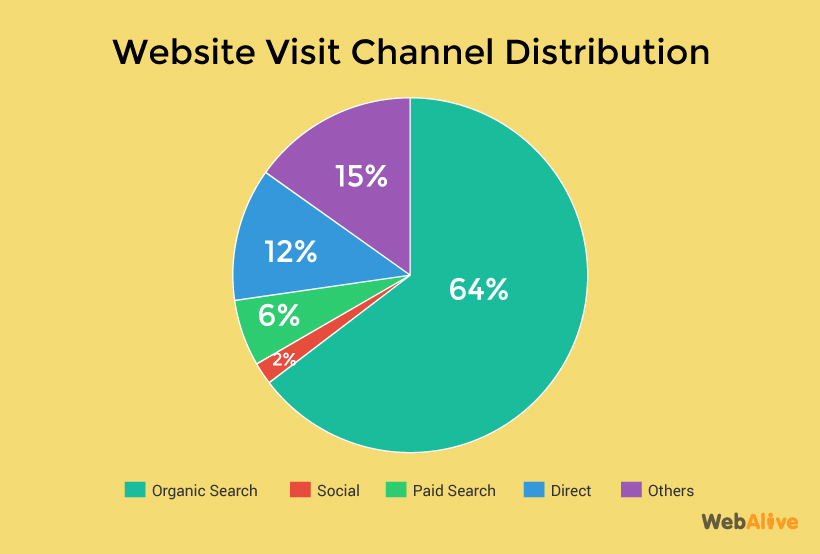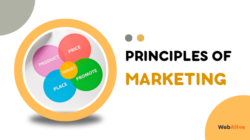
13 Basic SEO Tips for Business Owners to Get Started
We would like to introduce you to the concept of SEO (Search Engine Optimisation), what it means, why it is important to know and how you can use it to help your business grow. Some of you might already know or have heard of the term SEO. It is considered one of the most effective parts of online marketing, as it helps your business get to the top of search engines which ultimately leads to more traffic to your website!
What is SEO?
The broader concept of optimising one’s website for improved visibility in search engines result pages and all the techniques involved for that are expressed by this umbrella term of SEO – Search Engine Optimisation.
By the nature of the implementation, the concept of SEO is often branched into ‘On-Page SEO’ and ‘Off-Page SEO’.
While the On-Page SEO deals with the optimisations carried out on the backend and frontend of one’s website for better ranking, Off-Page SEO mostly refers to all the external promotional activities put into execution for effective Search Engine findability of the website content.
Why SEO is a Must
It is imperative for a website that it is indexed by search engines promptly and for that, an easy but equally strong site architecture is required. Even clear navigation process and sitemaps help a lot for quick indexing by search engines.
Visitors users also have a comparatively better experience when a website is optimised with the user experience in mind. And as search engines like Google give special significance to the user experience for better SERP ranking and website visibility, SEO of a website is definitely worth giving proper consideration.
The traffic of a website that is generated by search engines is a clearer indication of the significance of SEO as that is the most optimum source of a website’s traffic.
One research suggested that 64% of the total website traffic is generated from organic search queries, whereas only 2% comes from social media, 6 percent from the paid search like AdWords, 12% from direct traffic and rest of the 15% from various sources of referral.
Some other research even suggests that as much as 70-75% (approximately.) of total website traffic is coming from organic searches or from search engine queries.
Google leads the list as the top contributor to a study of 2015 reveals the search engine to account for more than 90% of total organic global web traffic.
This only underlines the importance of SEO which ensures a powerful presence of a website on Google Search Engine Result Pages (SERP).
And now to answer the question of how imperative and important this position of Google SERP is, we can take a look at the study result found from the research conducted by Advanced Web Ranking. The study evidently credits the top five results of first SERP to account for 67.60% of all clicks, whereas the 6 to 10 positioned results comparatively account for a mere 3.73%.
All these studies lead to this perception that the position among the top five results of a first SERP is all-important for a website.
This can be achieved by following the tips:
1. Relevancy
What search engines do is that they bring results for our all kind of questions ranging from simplest to the most involved. You can ask “how deep is Grand Canyon?” or a more complex query like “Suggest me the best YOGA Center near me”
Every search engines have their own internal algorithms based on what they provide results. But if one wants to influence the result, one can address factors based on relevancy like query provider’s location, search history, time credentials like day/month/year etc.
2. Content Quality
We all want our website content to be visible in SERPs, but that doesn’t mean we have to write for search engines only. If you compose content with keeping human beings as sole target audience and incorporates useful and supportive images, videos or other types of media in your published articles or contents that can definitely boost your search engine presence performance.
Well-produced contents are popular contents and as the Search metrics report suggests longer-form of content that serves a user’s purpose and a query is more likely to position better in SERPs.
Simply, user-experience focused contents ace the search engine results.
3. User Experience
Providing users with the best possible user experience also comes with some SEO benefits for the website. A website should be navigation-wise easy, search-wise direct, content-wise relevant and with proper internal linking. These all sum up to a better experience for website visitors who keep on exploring more web pages.
4. Site Speed
The page loading speed of a website is now a standard credential for search engines to rank a website in its SERPs. The website which has fast loading pages ranks better than the slow loading pages.
It might not be long enough when Google would start labelling query results hosted on Accelerated Mobile Page (AMP), as site speed is increasingly becoming a differentiating factor SEO-wise. A great tool to check website speed and diagnose fix issues is Google’s PageSpeed Insights.
5. Cross-device Compatibility
Gadgets and gizmos have taken the world by sweep. Handheld compact mobiles to large screened media-consumption centric tablets, palmtop phones to the productivity 2-in-1 tablet. The world is seeing a display screen-centric hardware or device revolution!
This brings the challenge of optimising a website and website content to make it compatible with any given device or the variant ranges of screen sizes.
Even search engines like Google has already underlined the importance mobile responsive design of a website for better search engine optimisation.
6. Title Tag and Meta Description
What tells the search engines what the website is all about?
How do visitors get the idea in SERPs what the links are about, what are their contents?
Yes, you guessed it correct – title tags and meta description it is!

The relevant and specific use of definitive keywords is a standard practice as that’s the most acceptable format for search engines as well as suitable for users.
While meta descriptions not necessarily and directly contribute to improving ranking on the SERP, but the inclusion of it in a page content evidently improves a searcher’s clicking and browsing possibility.
You can edit meta description from your website content management system (CMS) and have a preview of it as the short text paragraph appearing under website URL in the search results.
A succinct and clear meta description, which is under 156 characters, ensures the relevancy of the headline and the page content.
7. URLs
The website URLs can be set automatically in website CMS but it is recommended to be altered as per the SEO suitability. URLs are to be optimised keeping keywords into consideration and is not required to follow suit of headlines word by word.
8. Internal Linking
We’ve talked about the benefits of ensuring your site has clear and easy-to-use navigation, but there’s also a practice that editors and writers can carry out when publishing articles to help push traffic around the site and that may lead to higher trust signals for Google: internal linking.
Internal linking has many advantages:
- It provides your audience with further reading options.
- Improves SERP ranking for certain keywords.
- Search Engines like Google can crawl and index websites easily and faster with more credible credentials.
- Helps reducing website bounce rates.
9. Website Authority
The authority of a website indicates how much it is trusted by the site users, how relevant it is to the niche industry it is about, how operatively relevant it is to other websites and search engines.
Any link from a website with good authority is considered valuable. The more a website has such links, the higher the quality of its content becomes and consequently, the more vote of confidence it receives from users and search engines.
10. Image ALT Tag
The Image ALT attribute, though many people tend to skip this all-important feature, is a must which should be addressed while uploading images to one’s website.
As search engines like Google obviously, cannot “see” the uploaded image and are only capable of “reading” the uploaded content, the feature of alt attribute exactly enables the search engine to do so for images.
11. Domain Names and Relevant Credentials
Use of sub-directory root domains is encouraged instead of sub-domains as this is better for overall site architecture. The appropriate implementation is sub-directory root domain like (buynewbags.com/category/men), not (buynewbags.com.category.men.com).
The use of hyphens (big-bash-brazil.com) and alternative Top-level domain names such as .biz, .name, .info etc. are less effective and often attributed as spammy use.
12. Local SEO
It is a known fact that Google customises and serves results in a user’s query based on his/her respective location. This location-based search engine result customization poses massive importance and potential for local businesses as those can reach and grab target customers’ attention more effectively.
That’s exactly what happens when you walk through the footpath of your town suburb and google for a place to have lunch. Google shows you location-based customization result and restaurants who have optimised accordingly are shown in your SERP1 as top suggestions.
Businesses must register Google My Business to make sure that all the business credentials are accurately provided and regularly updated.
Business information like opening-closing times, contact information, customer reviews etc. serve a better customer experience. So, this is a smart call to list your website on the major local directories like Yelp, Yellow Pages, Truelocal etc.
13. Social
One of the most rewarding Non-SEO activities that help SEO objectives of a site is Social Media Marketing as this helps to improve a website’s visibility.
If your website or business has a presence on all over the social media channels and those are active with relevant contents which generate genuine people interaction then that can boost your website’s visibility in search engines.
Positive social signals received from engaging interactive social media add value to a website’s search rankings.
So we would finish up today with the cue that obviously these are not all the mantras to ace up the SEO game but obviously, you can get a headstart in your primary SEO efforts if you develop on the ground of this article and provided tips.
You read a lot. We like that
Want to take your online business to the next level? Get the tips and insights that matter.


